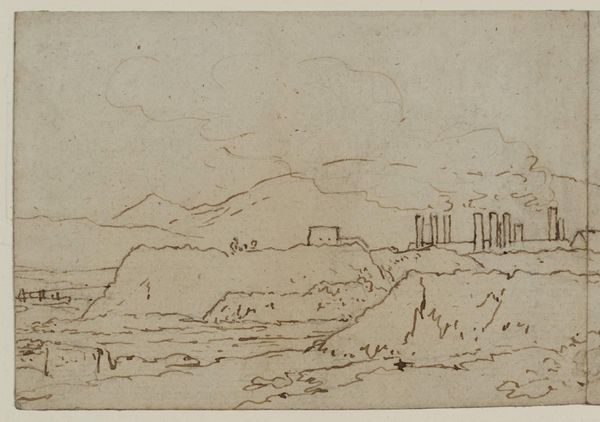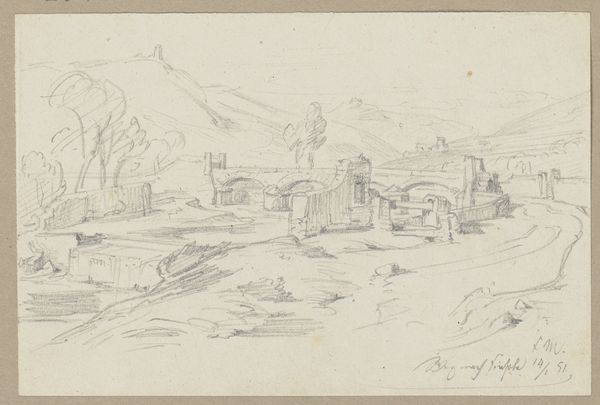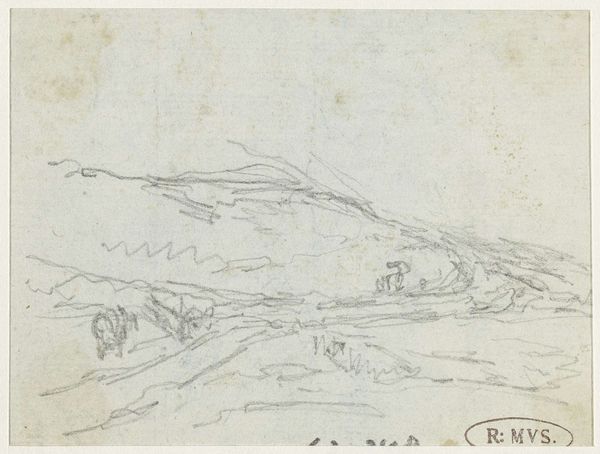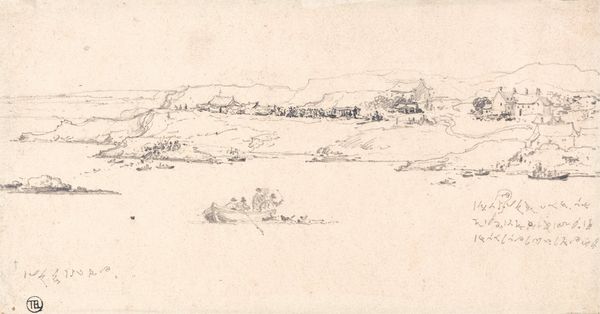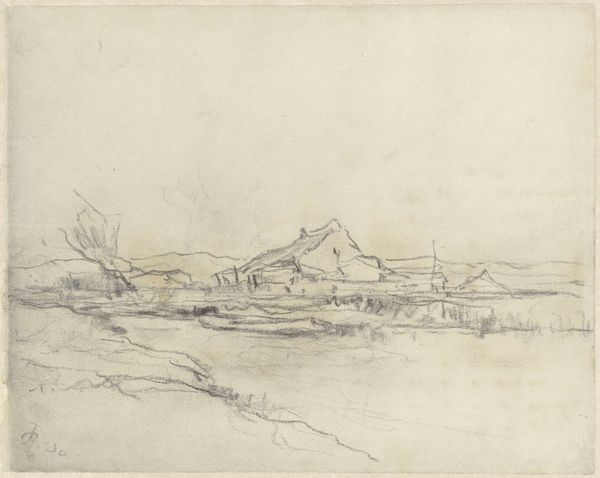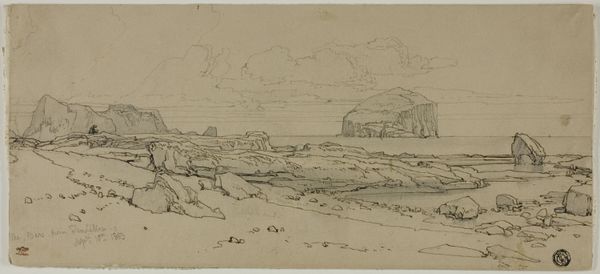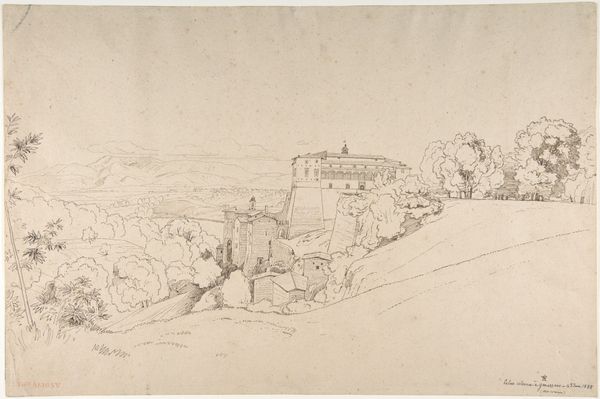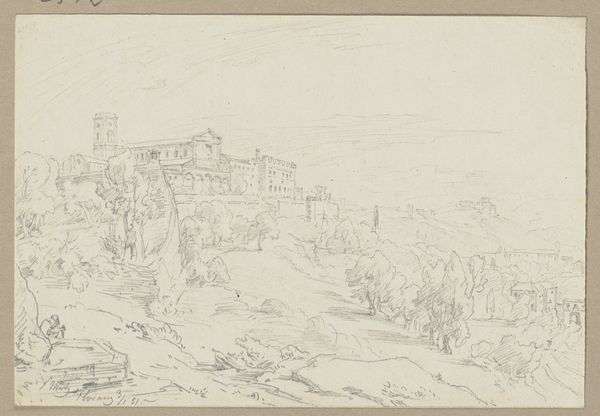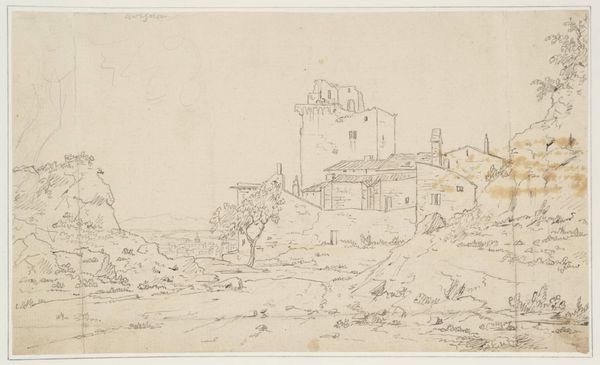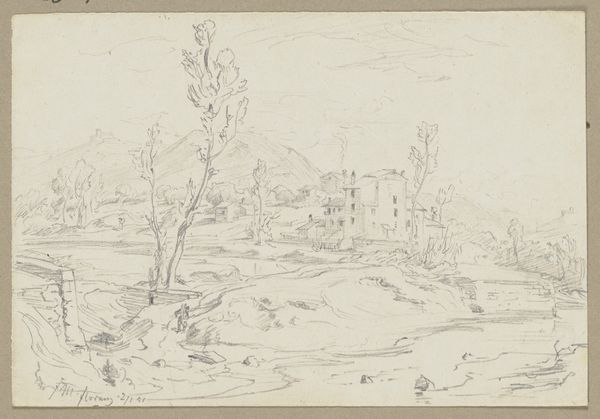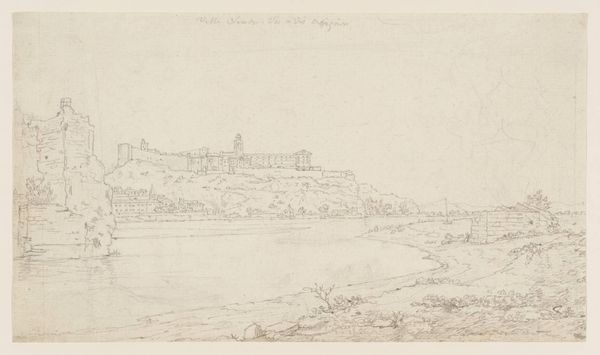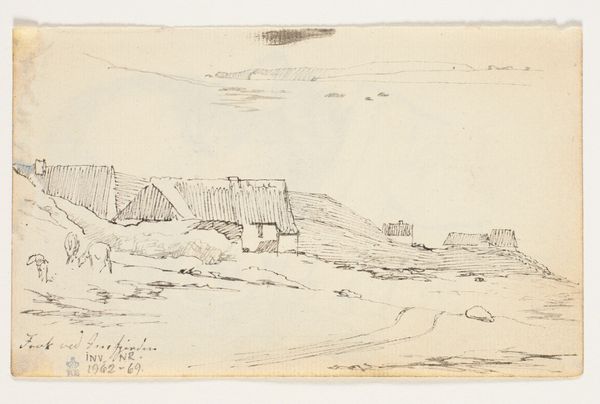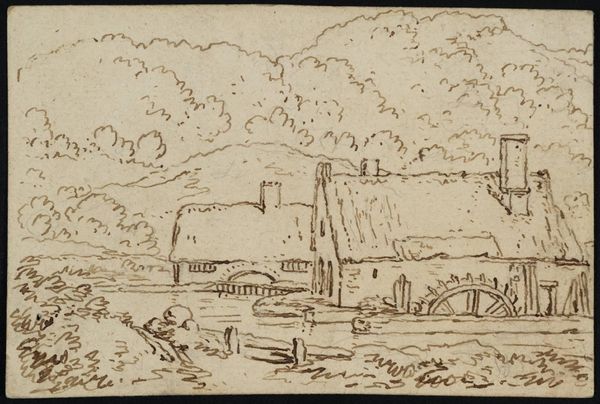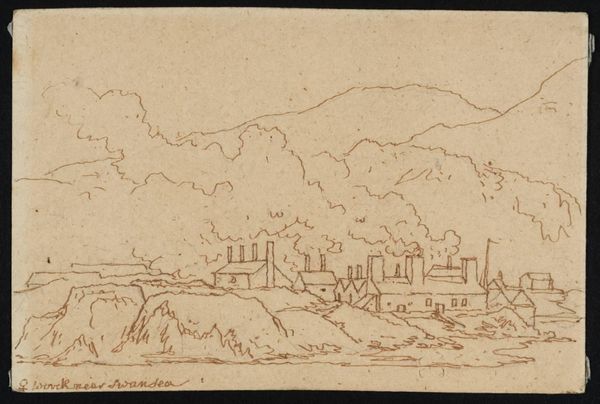
Dimensions: support: 80 x 113 mm
Copyright: CC-BY-NC-ND 4.0 DEED, Photo: Tate
Curator: Here we have Philip James De Loutherbourg's "Part of the Fforest Copper Works, Clase." Editor: It looks like a quick sketch, very immediate. The sepia tones evoke a sense of nostalgia. Curator: Indeed. The composition employs a rather stark, minimalist approach. Notice the lines; economical yet descriptive, defining form with precision. Editor: But what is the narrative here? A copper works suggests labor, industry. Where are the people who toiled to extract these resources? This silence feels pointed. Curator: The formal qualities suggest a study of spatial relationships, light, and shadow, rather than a social commentary. The artist’s intent, I suspect, was purely observational. Editor: Perhaps. Yet, can observation truly be separated from the socio-political context of resource extraction and its impact on the labor force? Curator: An interesting point to ponder, wouldn't you agree? Editor: Absolutely. It makes you consider the multiple layers that a simple sketch can possess.
Comments
tate 10 months ago
⋮
http://www.tate.org.uk/art/artworks/de-loutherbourg-part-of-the-fforest-copper-works-clase-d36384
Join the conversation
Join millions of artists and users on Artera today and experience the ultimate creative platform.
tate 10 months ago
⋮
This drawing comes from a group of designs by de Loutherbourg originally owned by Turner. Other drawings from this group are shown nearby. They all show Turner exploring the picturesque potential of the industrial landscapes of Shropshire and Wales. Such industrialised areas were popular with tourists. Travellers came to wonder at the achievements of modern industry, and enjoy the sublimity of the landscape. The French-born de Loutherbourg came to London to work as a theatre designer. He was a successful and highly versatile artist, especially famous for his exploration of theatrical light effects. Gallery label, September 2004
